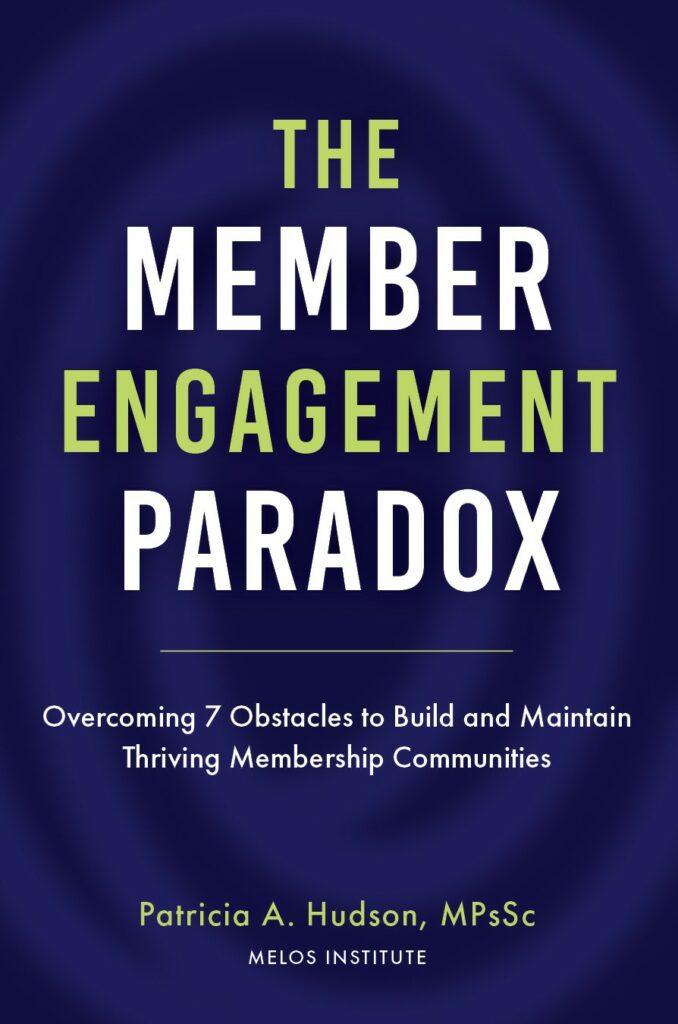Relation-centered Findings & Insights
Findings Reveal Better and More Lasting Ways to Build and Increase Member Engagement
The Member Engagement Paradox: Overcoming 7 Obstacles to Build and Maintain Thriving Membership Communities
Now Available
For decades, volunteer and staff leaders have been encouraged to believe the reason that their members haven’t engaged is because they are either…
“too busy”
“don’t recognize the value of their membership.”
Unfortunately, decades of survey research have done nothing but reinforce this notion.
What most volunteer and staff leaders don’t realize is that their predecessors have been complaining about their members being too busy since the late 1880s!
This revelation was recently discovered thanks to a rather unusual applied research initiative conducted by the Melos Institute. Active and inactive members’ stories became the key to the Institute identifying at least two key reasons why most members are hesitant and/or resistant to get involved in their membership-based organizations (MBOs).
- They don’t fully understand or appreciate what it means to be a member in a MBO.
- They don’t know how to navigate their MBO to engage in ways that matter most to them.
Written for volunteer and staff leaders of MBOs, The Member Engagement Paradox: Overcoming 7 Obstacles to Build and Maintain Thriving Membership Communities addresses these issues (as listed below) and more.
how we view members
how we view associations/MBOs
management processes and practices we adopt
what we believe members expect
how we promote MBOs and membership
how we communicate with members
how we prepare volunteer leaders
For the first time, this book explains the role MBOs are designed to play and why they can only operate effectively in functioning democracies. Further, it provides detailed evidence why these organizations differ substantially in purpose, focus, scope, and operations from for-profit and other nonprofit organizations.
It’s why the Institute has chosen to define associations representing professions, trades, and personal avocations uniquely as MBOs.
Ongoing applied research initiatives have led the Institute to recognize why many popular transaction-based management strategies – designed for use in for-profit settings – have failed to generate better and more lasting outcomes. They were crafted to achieve a very different set of outcomes. That insight prompted the realization that these existing strategies would be more effective if they were adjusted to reflect a relation-centered focus.
Further research revealed that, for decades, a host of innovative association management professionals had intuitively been making such adjustments. The author chronicles their efforts as well as those pilot tested more recently.
The Member Engagement Paradox offers those who volunteer or work in MBOs an opportunity to fully understand and appreciate the consequential contribution these organizations make – when they are operating in relation-centered ways – not only for their members and their members’ respective practice settings, but also to the quality of life for the larger society.
Click here to order your copy.

